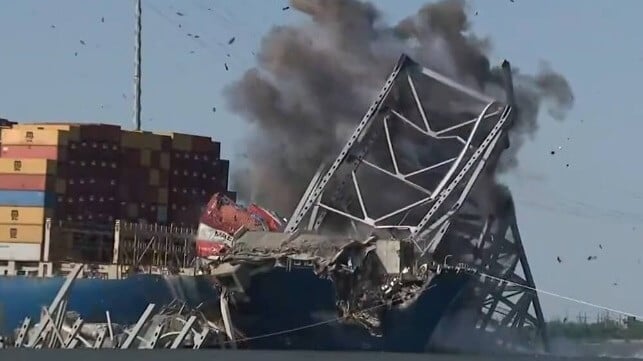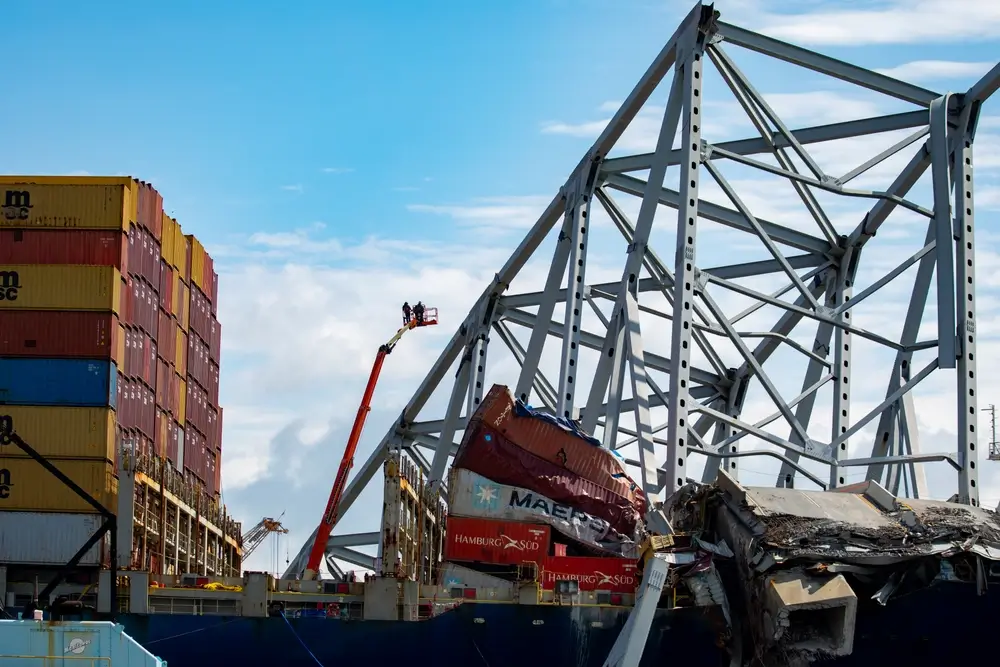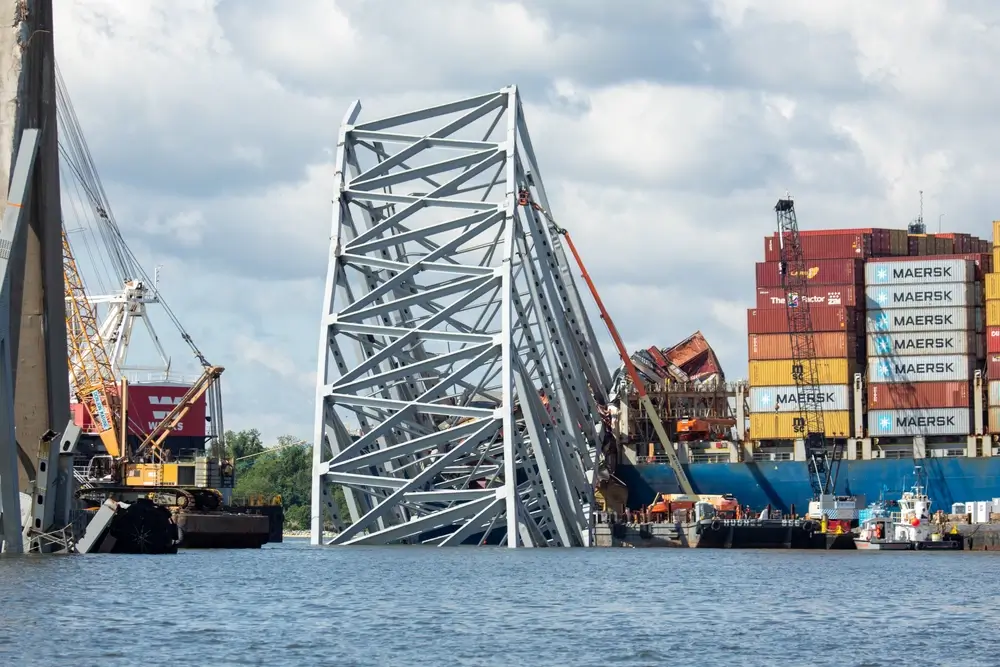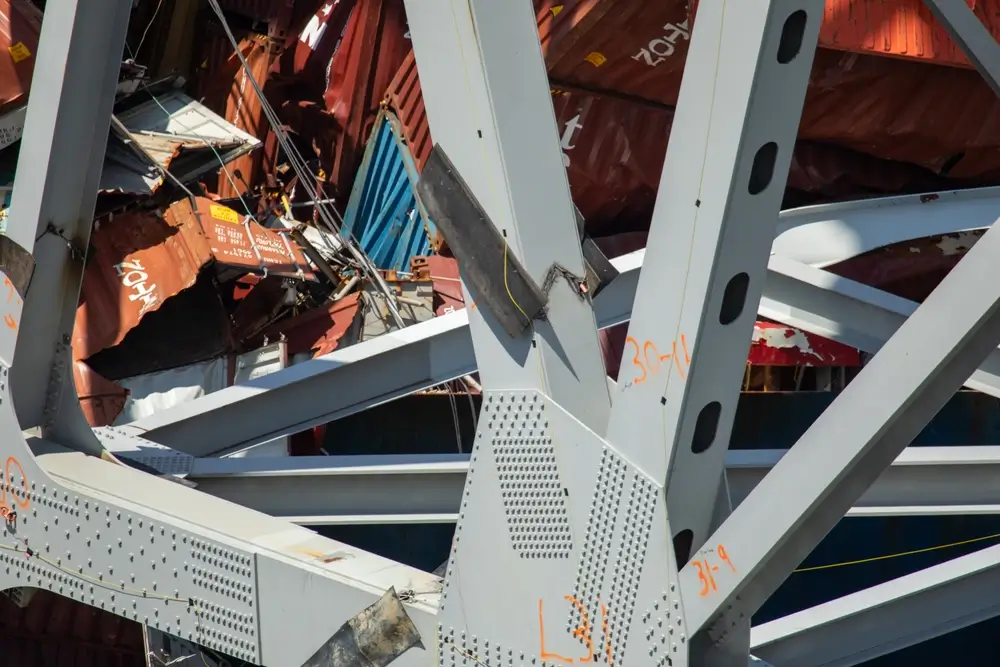Video: Last Baltimore Bridge Section Removed With Explosives

On Monday afternoon, after several days of delay due to weather, contractors used an explosive "precision" cutting process to remove a large section of the Francis Scott Key Bridge's collapsed truss from the bow of the boxship Dali. The kinetic operation unfolded almost exactly as predicted by USACE in an earlier explanation of the plan: the charges cut the bridge into multiple pieces, and the structure fell away from the ship and into the water.
EXPLOSION! Here's video of when workers set off explosives to help free the Dali from wreckage of the Key Bridge near Baltimore. #crazyvideo @7NewsDC pic.twitter.com/N0iQAGHXFm
— Scott Thuman (@ScottThuman) May 13, 2024
EXPLOSION! Here's video of when workers set off explosives to help free the Dali from wreckage of the Key Bridge near Baltimore. #crazyvideo @7NewsDC pic.twitter.com/N0iQAGHXFm
— Scott Thuman (@ScottThuman) May 13, 2024
The explosive clearance operation will take the last section of the bridge truss off the bow of the Dali at 1500 hours on Monday. The crew remained belowdecks aft, Rear Adm. Shannon Gilreath (USCG) explained, protected by thousands of containers and the hull's steel. As an additional precautionary measure, the command had firefighters on board, and set up a "water curtain" on the bow to reduce the (already slim) odds of a fire.



Contractors place charges for the precision cutting operation aboard the Dali (USACE)
"It's not what you envision," clarified Colonel Estee S. Pinchasin (USACE) at a press conference Monday. "It's very small, linear charges placed into cuts. They will separate the metal with precision. It will be more like small puffs of smoke [than a Hollywood explosion]."
Once the wreckage comes down into the water in small pieces, it will be removed by the crane and grab in the same way as the rest of the bridge, she said.
Contractors are making fast progress towards reopening the Baltimore shipping channel and removing the grounded boxship Dali.Since the start of operations in late March, commercial contractors for the U.S. Army Corps of Engineers and the Navy Supervisor of Diving and Salvage have removed almost all of the visible bridge wreckage above the water's surface, and are making tangible progress below the waterline. Using a grab claw on a giant crane, the contracting teams are pulling tangled pieces of the steel bridge truss out of the water, bit by bit.
So far, they have cleared a temporary channel measuring 48 feet deep by 350 feet wide, and - once Dali is removed - they will swiftly restore the full federal channel of 50 feet by 700 feet, according to Coast Guard Rear Adm. Shannon Gilreath.
The response process has moved with deliberate speed, putting safety first, Gov. Wes Moore said at the press conference. There have been no injuries reported on the project, and the command plans to keep it that way.
"Some people said that this would take months, but we've done it in weeks," said Moore.
